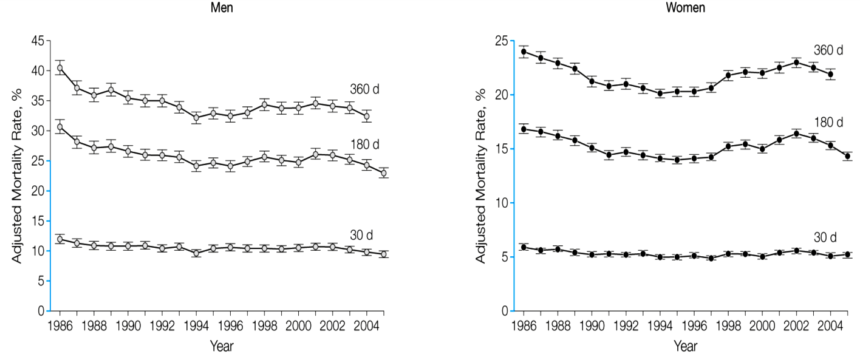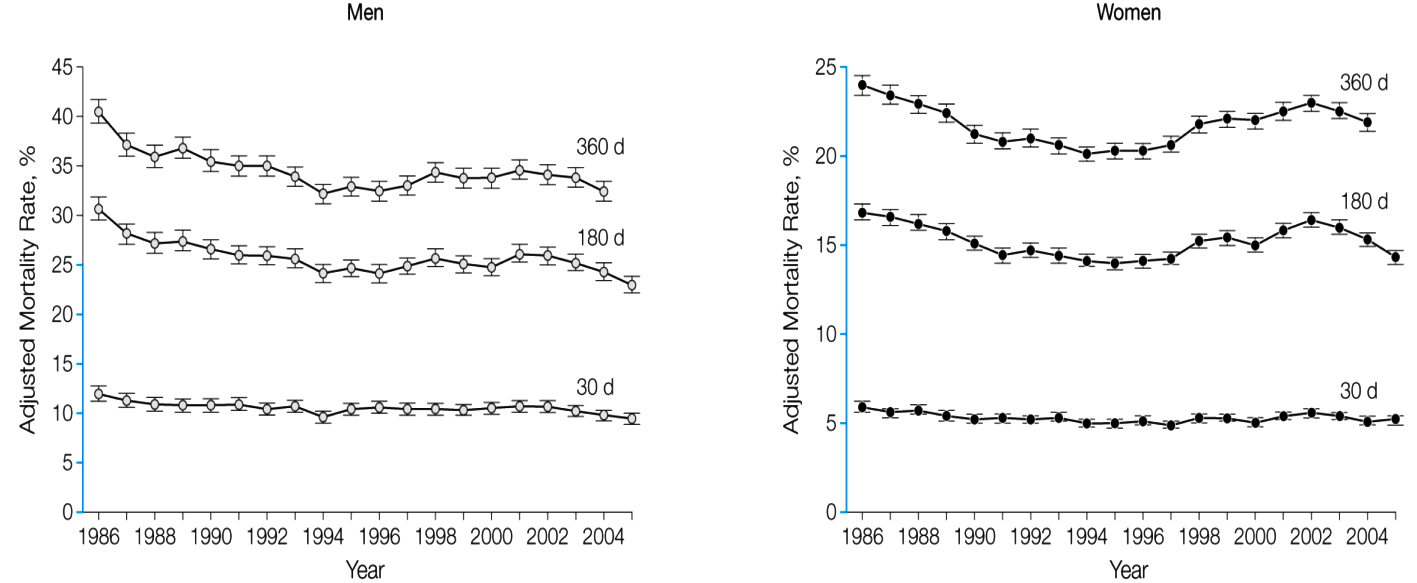Based on a 20 percent sample of Medicare claims from 1985-2005 for people 65 and older, Brauer et al. 2009 provide data on length of hospital stay for people with hip fractures in the U.S.
The median length of stay for hip fracture over the period decreased from 12 days to 5 days. Risk-adjusted mortality at 30, 180, and 360 days improved for both men and women:
Based on a 20 percent sample of Medicare claims from 1985-2005 for people 65 and older, Brauer et al. 2009 provide data on length of hospital stay for people with hip fractures in the U.S.
The median length of stay for hip fracture over the period decreased from 12 days to 5 days. Risk-adjusted mortality at 30, 180, and 360 days improved for both men and women:
Source: Carmen A. Brauer et al. 2009. “Incidence and Mortality of Hip Fracture in the United States,” JAMA, 302, 14, 1573-1579.
Innumerable studies in the health care literature use reduction of days in hospital as a measure of reduced costs. Unfortunately, the simple reduction of days in hospital and death rates, while welcome, tells us little about readmissions, total costs, or extent of recovery.
With the passage of DRG reimbursement in 1983, hospitals began adjusting their business models to accommodate flat rate payments. One outcome was “quicker but sicker” discharges. In 1986-88, the paper notes that 34.3 percent of hip fracture patients went home with self-care and 33 percent were discharged into skilled nursing facilities. By 2003-05, only 5.3 percent of patients were discharged home with self-care. The majority, 52.9 percent, were discharged to a skilled nursing facility.







